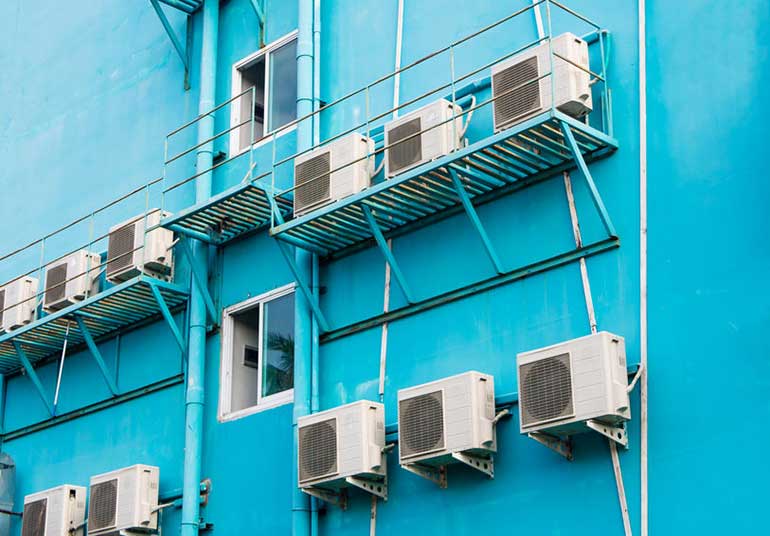Cool Coalition agrees major push on cooling efficiency
24th September 2019
USA: The Cool Coalition has announced major new commitments to efficient, climate-friendly cooling with governments promising national cooling plans, leading companies pledging product emission cuts and donors providing new funding.
According to the Cool Coalition, the major new commitments, announced at a meeting prior to this week’s Climate Action Summit in New York, could make a huge positive impact on climate change, helping to achieve sustainable development and save trillions of dollars.
Catalysed by the Kigali Cooling Efficiency Programme (K-CEP), the Cool Coalition – a global network connecting over 80 partners from the private sector, government, cities, international organisations, finance, academia and civil society – was set up in April 2019 and works to expand access to cooling while reducing the climate impact.
Twenty-six countries, including Bangladesh and the Philippines, committed to adopting comprehensive national cooling plans. Five countries – the Dominican Republic, North Macedonia, Rwanda, Senegal and Spain – committed to integrate cooling in their greenhouse gas emission reductions under the United Nations Framework Convention on Climate Change. Additional countries making cooling-related pledges were Andorra, Chile, Costa Rica, Denmark, Djibouti, Hungary, Japan, Lebanon, Norway and UK.
The World Bank Group and the Green Climate Fund are integrating clean and efficient cooling across their lending/investment portfolios. In addition, the Children’s Investment Future Fund (CIFF) has pledged an additional US$20m in funding for cooling, bringing K-CEP funding to over $60m.

The C40 cities, including Copenhagen, Medellin and Barcelona, will work with their network of more than 94 member cities to share expertise and integrate urban cooling into their climate action plans to reduce energy consumption while improving air quality. The C40 Cities Climate Leadership Group represents one twelfth of the world’s population and one quarter of the global economy.
On the manufacturing front, domestic appliance companies Electrolux and the Mexican manufacturer Mabe announced plans to switch to lower GWP refrigerants in all of their cooling product lines.
Power company Engie plans to invest between €1.8-2bn in highly efficient district cooling systems by 2024. Others will scale up pilot projects: Empower will support projects in 10 new cities and Tabreed will invest in cooling efficiency innovations in seven countries, including India, where the demand is growing.
“Overall cooling represents 70% of peak energy consumption in the GCC. Getting cooling right in this region is a necessity and we have been taking actions over 20 years to reduce the energy demand using district cooling,” said Bader Al Lamki, CEO of Tabreed.
Led by France, several countries also committed to the Biarritz Pledge for Fast Action on Efficient Cooling. The Biarritz Pledge was initiated during France’s Presidency of the G7 in Biarritz last month. Several countries have already signed the pledge, which calls on countries to take ambitious measures to improve energy efficiency in the cooling sector and to support the Coalition’s Efficient Cooling Initiative.

Major commitment
The Biarritz Pledge commits countries to six major actions. These include improving energy efficiency in the cooling sector while phasing out HCFC and phasing down HFC refrigerants; using the state’s bulk purchasing power and relevant measures to support the phase down of
HFCs and improvements in energy efficiency beginning in 2020, while encouraging the private sector to do the same; facilitating market access for highly efficient and affordable cooling technologies using low- or zero-GWP refrigerants; seeking support from financial institutions and funds to mobilise additional financing.
The cooling challenge has been referred to as a “blind spot” in climate action, which must increase at least fivefold to keep the global temperature rise this century to 1.5°C.
Over one billion people are estimated to be facing immediate risks from a lack of cooling, and a warming planet means this number will only increase. But cooling also contributes to heating the planet. It is predicted that by 2050, space cooling alone will consume as much electricity as China and India today and much of the world’s projected renewables capacity. The latest research, however, predicts that moving to best available technologies would reduce cumulative emissions by 38-60GtCO2e by 2030 and up to 130-260GtCO2e by 2050.
“Three years ago, the world adopted the Kigali Amendment to the Montreal Protocol to phase out the hydrofluorocarbon greenhouse gases used in cooling,” said Dr Vincent Biruta, Rwanda’s environment minister. “If successfully implemented, the Kigali Amendment, coupled with better energy efficiency, will avoid a full one degree of warming by the end of the century. Efficient cooling is essential to achieving the targets of the Paris Agreement.”
Getting cooling right offers a three-in-one opportunity to cut global warming, improve the lives of millions of people, and realize huge financial savings,” said UN Environment Programme (UNEP) Executive Director Inger Andersen. “The Cool Coalition is a powerful new collective force for realising these and many other benefits. UNEP is delighted to be working with such a wide range of stakeholders to accelerate the transition towards efficient, climate-friendly cooling for all.”
Related stories:
Cooling Coalition seeks path to sustainable cooling – 8 April 2019
DENMARK: Refrigeration and air conditioning equipment companies Danfoss and Engie are backing a new coalition to accelerate action on the transition to “clean and efficient” cooling. Read more…







